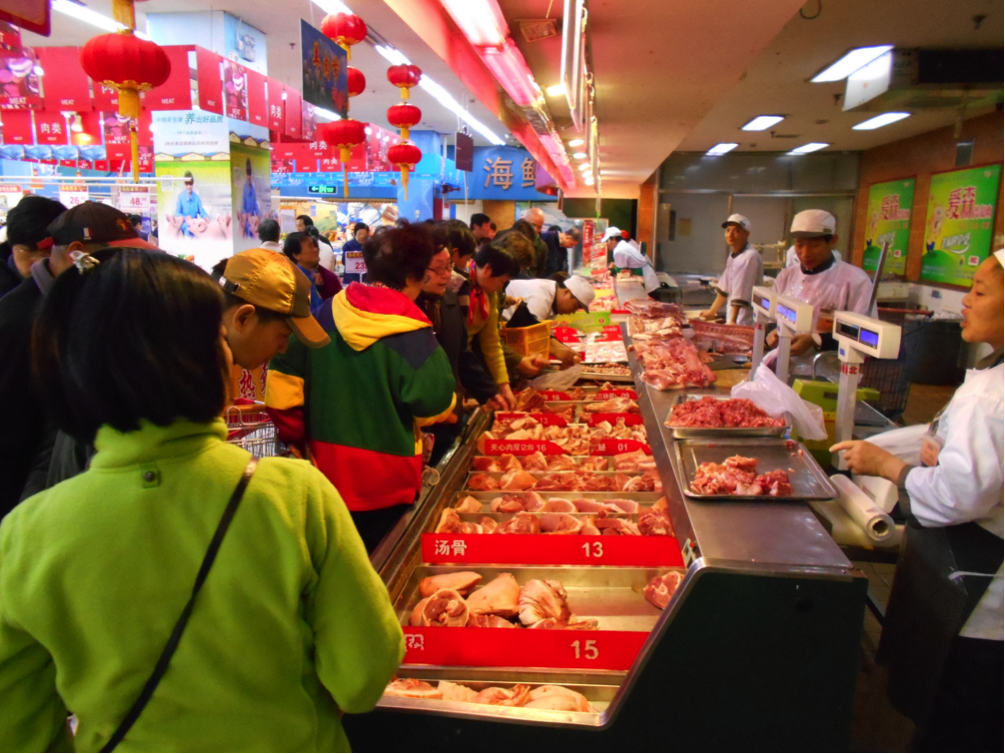DESPITE China and several other large importing countries dropping suspensions on Brazilian meat imports on Sunday, Brazil still faces some short-term difficulties in export and domestic markets as a result of its Government investigation into corruption in the meat inspection system.
The comments came from Rabobank’s Brazil-based senior economic analyst Adolfo Fontes, in Australia this week for a series of speaking engagements (see this morning’s separate report).
China – Brazil’s single largest beef export market – plus Chile and Egypt, on Sunday lifted week-long bans on Brazilian imports in response to earlier dramatic reports about investigations into irregularities in Brazil’s meat inspection system.
“In the short term, we expect to see some impact from temporary suspension in Brazilian meat exports, but measured across the entire 2017 calendar year, we still anticipate an increase in beef shipments, compared with last year,” Mr Fontes said during an interview with Beef Central yesterday.
“With the re-approval of exports to key customer countries, Brazil is now hopeful that export trade will return quickly to earlier levels,” he said.
For the first two months of 2017, prior to the recent investigation crisis, Brazil had exported 40,000 tonnes of beef to China, against average monthly exports last year of 14,000t for 2016.
In terms of Brazil’s main export destinations, only Hong Kong now remains with restrictions on trade – after more than a dozen countries imposed suspensions or restrictions on trade this time a week ago.
Mr Fontes said he was not particularly surprised at how quickly access had been regained, after importing countries learned more facts about Brazil’s recent police investigation.
“There are 4800 animal protein processing establishments in Brazil. This investigation only focussed on 21 units, and of those, only three have suspensions. Technically, the problem was very much smaller than what was portrayed in earlier media reports and social media,” he said.
The international markets had now improved their understanding of the facts behind the situation, and were responding accordingly.
Reputational damage
Mr Fontes agreed that the earlier media coverage, both in Brazil and overseas, had done some reputational damage to the image of Brazil’s meat industry. Unfortunately while most of the issues in the earlier investigation centred on chicken and pork production, beef’s reputation had also suffered.
Domestic consumption might retract for a short period as a result of the earlier reports, he said, but this was not expected to last long.
“The fact that China, Egypt and Chile are now all now happy to accept Brazilian beef again will also help restore confidence among domestic Brazilian consumers over the safety of meat,” Mr Fontes said.
“We expect that the situation will become more normal again in the coming days.”
With about 80 percent of Brazil’s massive annual beef production consumed within the domestic market – numbering about 200 million voracious beef eaters – any lingering negative reaction from Brazilian consumers could have a dramatic effect on volumes of Brazilan beef flowing into export markets.
“But the big processing stakeholders in Brazil, like JBS, Brazil Foods and Minerva, will now all have to do a lot of work to reassure Brazilian consumers. The problem being investigated is not about companies or brands, but a few corrupt individuals doing the wrong thing,” Mr Fontes said.
The animal protein industry in Brazil was a huge part of the economy, so it was not ‘entirely unexpected’ that there were a few people within it doing the wrong thing, he said.
Mr Fontes said there were in fact a lot of similar corruption investigations going on across Brazil over the past two or three years, in a wide range of areas of business and government. Red meat inspection was just one.
“This scrutiny is a good thing, because it shows Brazil is going through change, cleaning up the issue and putting actions in place to correct any isolated problems. That will make the country and the industry stronger in the future,” he said.
See this morning’s second story on Mr Fontes’ views on the outlook for Brazilian beef.

